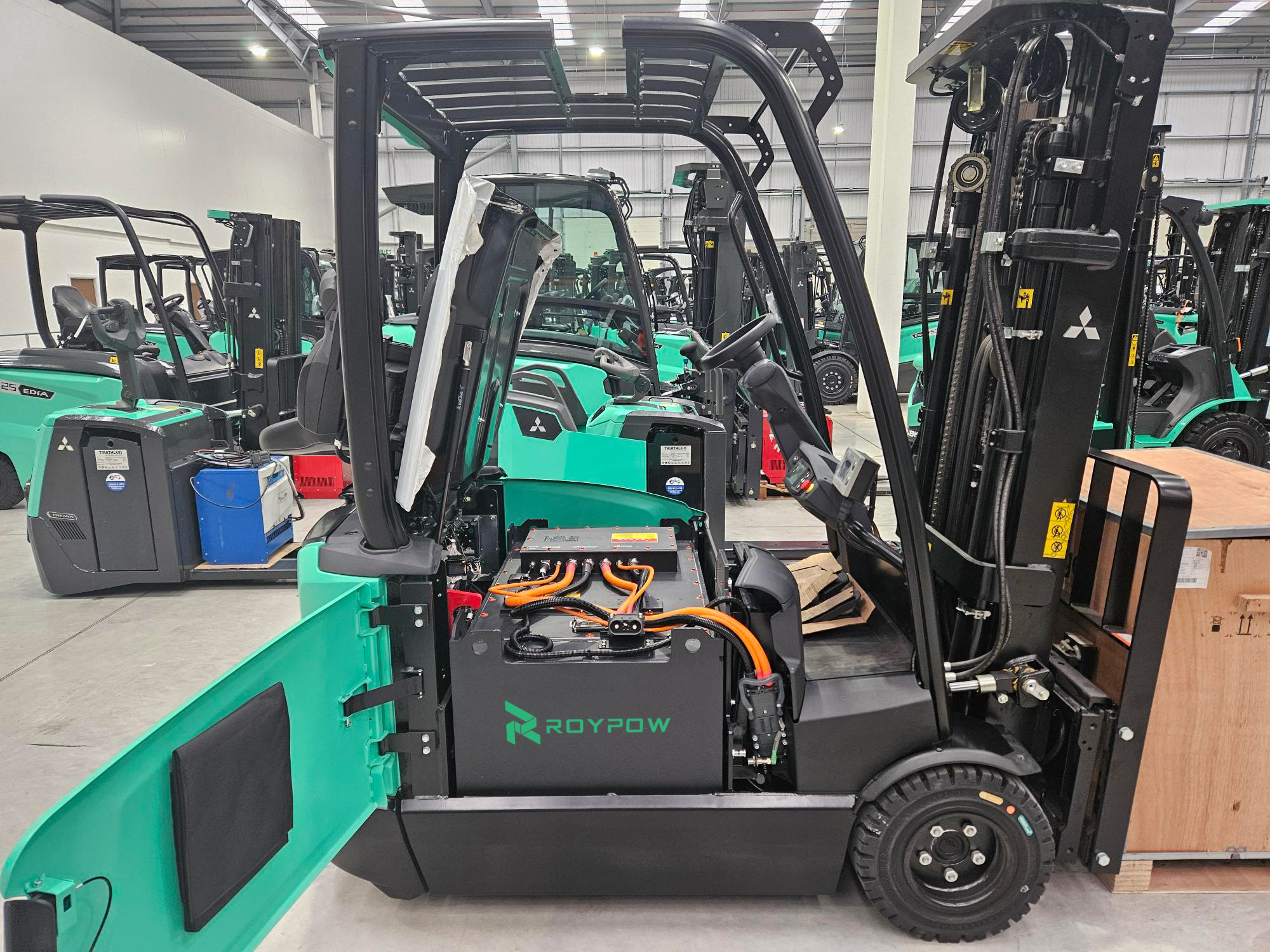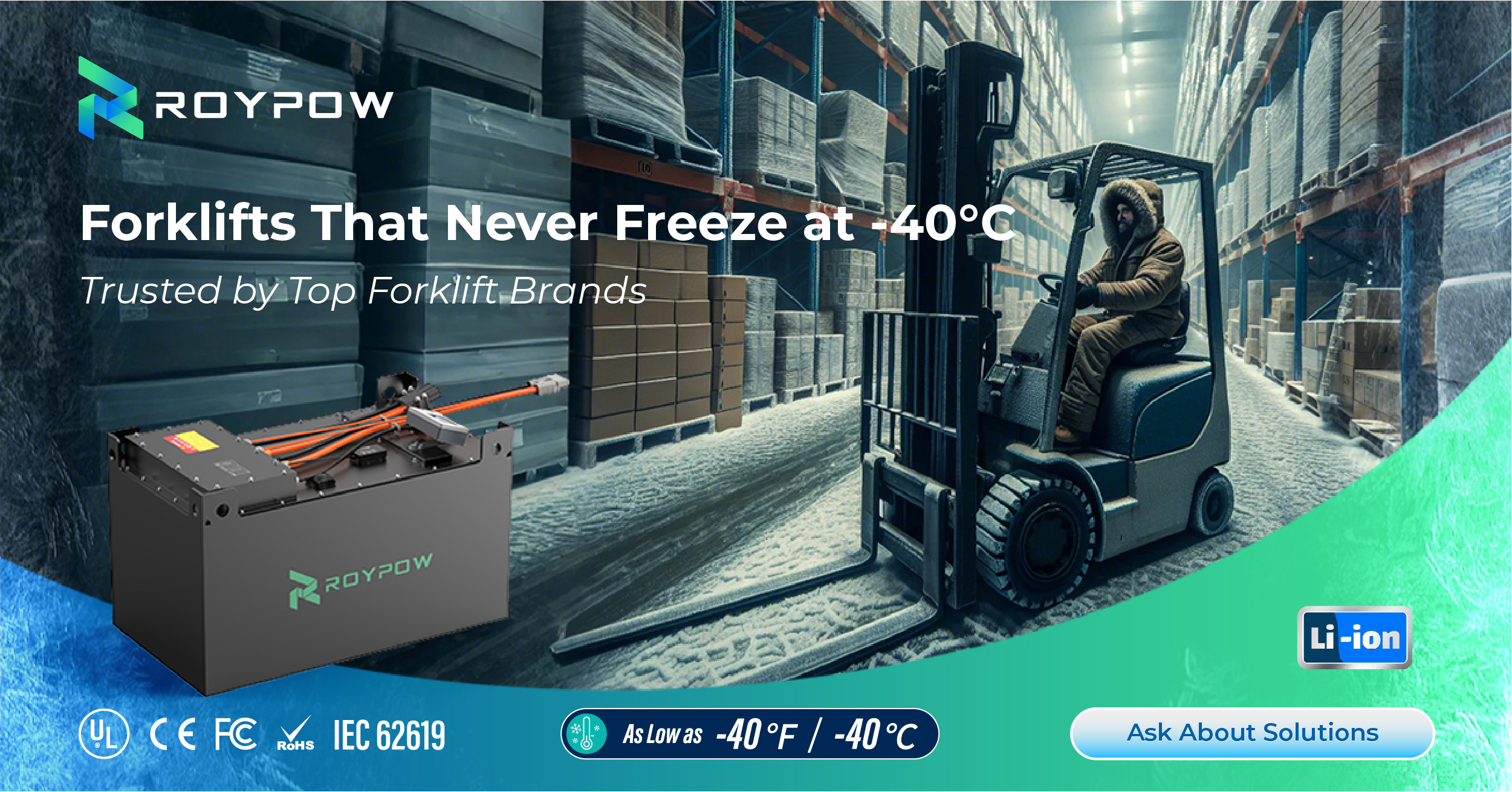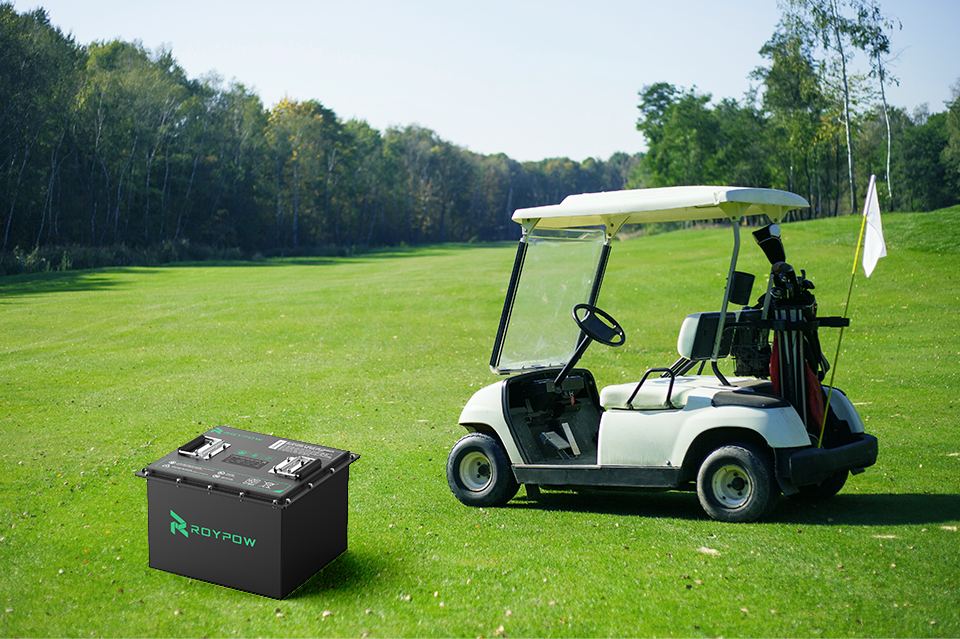The current market conditions of changing raw material prices and fast-paced consumer delivery needs have made operational efficiency and sustainable development vital for logistics companies.
The forklifts operate as essential equipment, connecting production areas to warehouses and transportation centers. However, the lead-acid battery faces increasing difficulties in modern logistics operations with limited operational time, extended charging duration, and expensive maintenance requirements.
In this context, lithium forklift batteries have become a transformative solution that enhances operational performance and environmental sustainability for worldwide supply chain operations.
Supply Chain Challenges & Market Analysis
1. Supply Chain Challenges
(1) Efficiency Limitation
The long charging duration of traditional lead-acid batteries, along with their extended cooling requirements, forces operations to halt or rely on a large number of backup batteries. The practice results in resource waste while it limits warehouse operational capacity and continuous 24/7 operations.
(2) Cost Pressures
The management of lead-acid batteries involves charging, swapping, maintenance, and specialized storage, really elevating labor expenses.
Additionally, the disposal process for used lead-acid models requires strict adherence to environmental regulations. Companies may face additional financial fines when they fail to handle waste properly.
(3) Green Transformation
The world has seen governments and businesses establish targets to reduce carbon emissions. The high energy consumption, lead pollution, and acid disposal issues associated with lead-acid batteries are becoming increasingly inconsistent with the ESG goals of modern enterprises.
2. Market Analysis of Forklift Lithium-ion Batteries
l The forklift battery market is growing fast. It was worth $5.94 billion in 2024 and is expected to reach $9.23 billion by 20312[1].
l The global market is divided into five main regions: North America, Europe, Asia-Pacific (APAC), Middle East & Africa, and Central & South America[2].
l Some regions use more forklift batteries than others, depending on their infrastructure, government support, and how ready the market is[2].
l In 2024, APAC was the largest market, Europe was second, and North America was third[1].
Technological Breakthroughs of Forklift Lithium Batteries
1. Increased Energy Density
The measurement of battery power storage capacity relative to weight and volume is known as energy density. The high energy density of Lithium-ion forklift batteries enables them to deliver equal or extended runtime from smaller and lighter packages.
2. Fast Charging for Immediate Use
A lithium-ion forklift battery outperforms lead-acid models because it enables fast charging within 1-2 hours and allows for opportunity charging. Operators can receive substantial power boosts during brief intervals such as rest breaks and lunch hours to support complete on-demand operation.
3. Wide Temperature Adaptability
The operating environment of forklifts extends beyond warehouse spaces; they also function in cold storage of food or pharmaceutical logistics. The capacity of lead-acid batteries may drop in a cold environment. Conversely, lithium forklift batteries can maintain normal operation within a broad temperature range from -40°C to 60°C.
4. High Safety and Stability
Modern lithium forklift batteries achieve both safety and stability through technological advancements. Their multiple protective layer can protect against excessive charging & discharging, short circuits, which track battery status continuously while providing immediate power shutdown during abnormal conditions to protect operators and equipment from harm.
For example, ROYPOW lithium forklift battery solutions are equipped with fire-proof materials, a built-in fire extinguishing system, multiple BMS safety protections, and more to ensure safety and reliability. Our batteries across all voltage platforms are UL 2580 certified, making them a dependable power source for modern material handling operations.
How Forklift Lithium Batteries Reshape the Logistics Industry
1. Cost Structure Transformation
On the surface, the initial purchase price of a forklift lithium battery is 2-3 times that of a lead-acid battery. However, from a total cost of ownership (TCO) perspective, lithium-ion forklift batteries shift the cost calculation for logistics companies from a short-term initial investment to a long-term cost-effective solution:
(1) Lithium forklift batteries have a lifespan of 5-8 years, while lead-acid units need to be replaced 2-3 times during the same period.
(2) No need for rehydration, terminal cleaning, or capacity testing, saving time and money.
(3) >90% charging efficiency (vs. 70-80% for lead-acid) means significantly less electricity is consumed for the same runtime.
2. Upgrade Work Modes
A lithium-ion forklift battery can be charged during breaks, shift changes, or short intervals in material flow, boasting several key benefits:
(1) The elimination of battery swap downtime enables vehicles to run for 1-2 more hours daily, which leads to 20-40 additional operating hours for warehouses operating 20 forklifts.
(2) Lithium-ion battery for forklift doesn’t need backup units and dedicated charging rooms. The freed-up space can be repurposed for additional storage or expansion of production lines.
(3) The maintenance workload has decreased significantly while operational errors from incorrect battery installation have become nearly non-existent.
3. Accelerate Green Logistics
With zero emissions during use, high energy efficiency, and a recyclable nature, forklift lithium batteries can assist warehouses and logistics centers in obtaining green building certifications (e.g., LEED), reaching carbon neutrality goals.
4. Deepen Intelligent Integration
The built-in BMS can monitor key parameters (like capacity, voltage, current, and temperature in real time) and transmit these parameters to a central management platform via the IoT. AI algorithms leverage the big data collected by the BMS to conclude predictive maintenance.
High-quality Forklift Lithium Battery from ROYPOW
(1) Air-Cooled LiFePO4 Forklift Battery (F80690AK) aims to optimize efficiency and extend runtime in light material handling applications involving frequent start-stop operations. Compared to traditional lithium forklift batteries, this air-cooled solution reduces operating temperatures by approximately 5°C, improving thermal stability.
(1) Specifically engineered for cold storage environments, our Anti-freeze LiFePO₄ Forklift Battery can keep reliable power output and high operational efficiency throughout temperatures between -40°C and -20°C.
(2) Explosion-Proof LiFePO₄ Forklift Battery meets international key explosion-proof standards to operate safely in explosive environments with flammable gases and combustible dust.
Upgrade Your Forklift with ROYPOW
The modern logistics industry benefits from lithium-ion forklift batteries, which solve fundamental operational problems related to efficiency and cost, and sustainability.
At ROYPOW, we recognize how energy breakthroughs create essential value for supply chain evolution. Our teams are committed to developing dependable lithium forklift battery solutions, helping businesses enhance operational performance, lower expenses, and achieve sustainable intelligent growth.
Reference
[1]. Available at:
https://finance.yahoo.com/news/forklift-battery-market-size-expected-124800805.html
[2]. Available at:
http://www.marketreportanalytics.com/reports/lithium-ion-forklift-batteries-228346

























